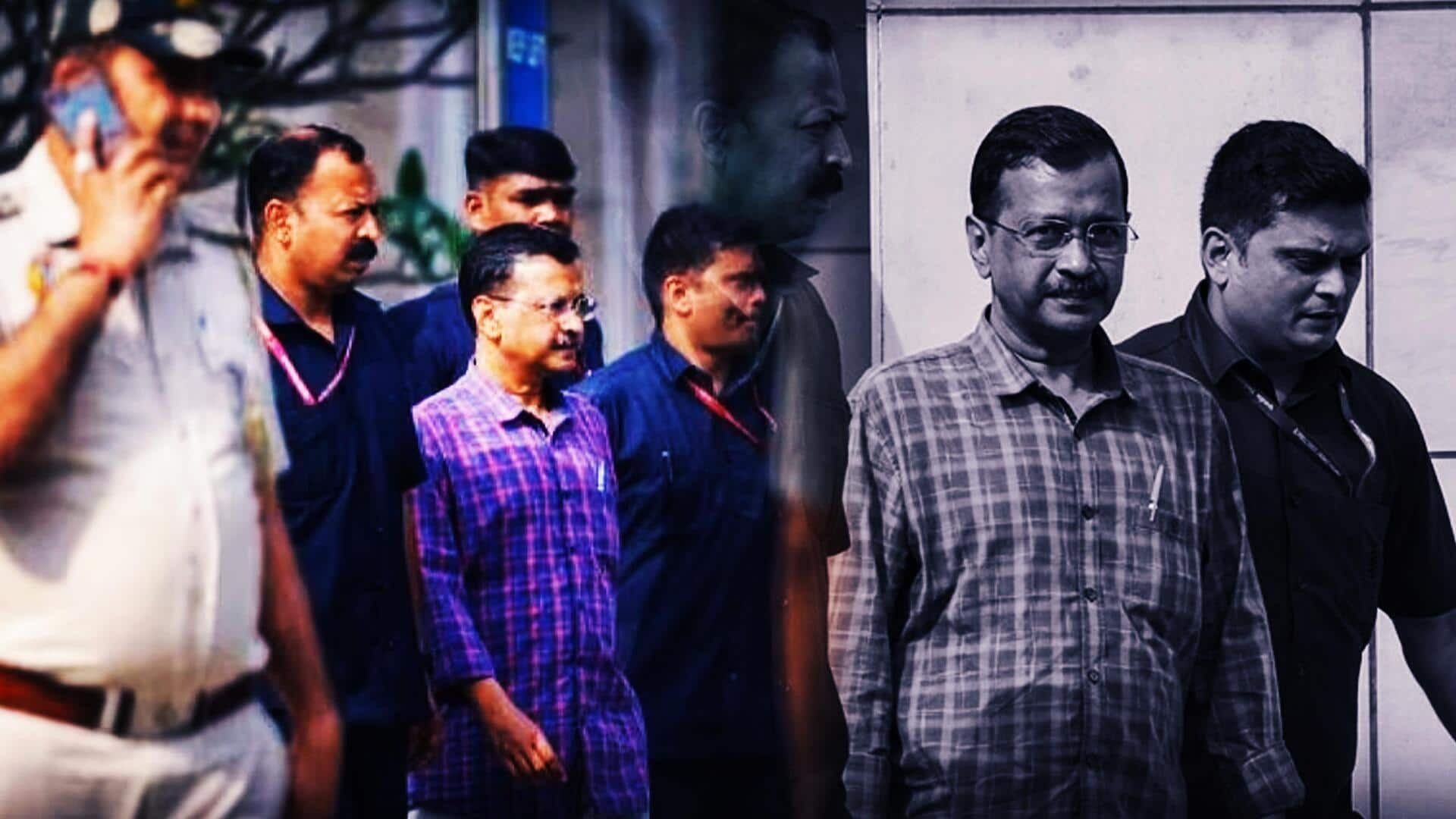Delhi CM Arvind Kejriwal granted bail in excise policy case
What's the story
The Rouse Avenue Court on Thursday granted bail to Delhi Chief Minister Arvind Kejriwal in the money laundering case linked to the now-scrapped excise policy.
Vacation Judge Nyay Bindu of Rouse Avenue Courts passed the order after reserving it earlier today.
Despite the Enforcement Directorate (ED)'s request for 48 hours to accept bail bonds for potential appeal, Judge Bindu clarified there was no stay on the bail order.
Context
Why does this story matter?
Kejriwal was arrested by the ED on March 21 over corruption allegations linked to excise policy.
The probe agency alleges that Kejriwal played a significant role in drafting the policy and soliciting bribes for liquor licenses.
It claimed that his party, the Aam Aadmi Party (AAP), received kickbacks amounting to ₹100 crore which were used to fund its Goa and Punjab election campaigns.
Both Kejriwal and the AAP have denied these charges, labeling them as "political vendetta."
Prosecution's argument
Prosecution links Kejriwal to alleged money laundering
Notably, Judge Bindu heard the case for two days before reserving orders.
During the hearing, Additional Solicitor General SV Raju argued that the ED has documentary proof showing part of the crime proceeds funded Kejriwal's hotel stay in Goa.
He added the agency also possesses documentary evidence, including calls and call data records, demonstrating that co-accused Chanpreet Singh—who allegedly handled funds for the AAP's Goa election campaign—received ₹45 crore from various sources in cash and paid for Kejriwal's hotel stay.
Prosecution says
'Kejriwal directly responsible for AAP's affairs'
Raju had said the CM had "good relations" with co-accused Vinod Chauhan—who allegedly transferred a cash bribe from the "South Group" to the AAP.
He added that Kejriwal is "directly responsible" for the AAP's affairs and thus liable for the offense committed through the party.
Regarding the timing, Raju said the ED did not act in "hot haste" and arrested the CM only after the Delhi High Court denied him relief from coercive action after reviewing "detailed records."
Defense argument
Kejriwal's defense challenges prosecution's evidence
Kejriwal's counsel, senior advocate Vikram Chaudhari, had countered the prosecution's claims by arguing that the federal agency failed to establish a money trail or substantiate allegations that AAP leaders received kickbacks through policy formulation.
Chaudhari stated that the case against Kejriwal was based on statements from "tainted co-accused," who had been granted bail or pardon. He highlighted contradictions in these statements, asserting they lacked "material corroboration" and were of "questionable veracity."
Witnesses
Defense questions credibility of prosecution's evidence
Chaudhari further questioned the credibility of the evidence presented by the ED, referring to statements from witnesses who were granted pardons and turned approvers.
He also pointed out that Kejriwal has not been made an accused in the Central Bureau of Investigation (CBI)'s case to date and argued that as a constitutional functionary, his position ought to be respected.
The defense maintains that the case against Kejriwal is based on "questionable veracity."
Background
Kejriwal's bail proceedings
To recall, on Wednesday, the Rouse Avenue court had extended the judicial custody of the Delhi CM until July 3.
Earlier, Kejriwal was granted a temporary three-week bail to campaign for the Lok Sabha elections.
Kejriwal had moved the Supreme Court seeking an extension of his interim bail to undergo medical tests due to his "unexplained weight loss coupled with high ketone levels."
While rejecting his plea, the SC had advised him to approach the trial court for regular bail.
